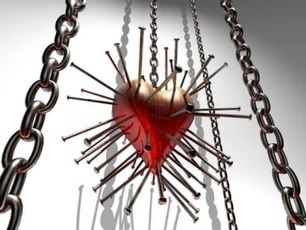- Abuse: Psycho-sexual Impacts
-
We have taked a little about resiliance.. about why some people manage to move on and manage their lives and sometimes even to thrive, following a negative life experience.
A number of factors make the difference between the psychological health of the victim and the 'survivor'.
Individual characteristics: self-esteem, confidence, intelligence, creativity, humour, independence, and in many instances faith.
Protective factors: the presence of secure and effective family and social support structures. Supportive and caring family members and friends, school, health and justice professionals.
Strength Focussed approach: a focus on the positive and strong personal qualities of the victim/survivor, removal of self-blame and guilt. Placing blame for the assault firmly with the perpetrator. Encouraging a step by step approach to healing.
Community safety: neighborhood stability, access to health care, police, health, witness support and justice services.
The other side of the resilience coin includes psychological consequences that range on a continuum from the purely personal to effects that affect others in the community, often with devastating consequences. Whe W/we consider the following there is little doubt that there is sound argument for supporting the development of resilienceThe immediate emotional effects of abuse and neglect:- isolation
- fear
- inability to trust
Even after much time has passed, the effects of abuse are powerful. found the long-term effects of maltreatment to include poor self-esteem, difficulty trusting others, anxiety, feelings of isolation and stigma, depression, self-destructive tendencies, relationship difficulties, sexual maladjustment, and substance abuse :- Poor mental and emotional health in Youth: In one long-term study, as many as 80 percent of young adults who had been abused and/or neglected met the diagnostic criteria for at least one psychiatric disorder at age 21 - including panic disorder, dissociative disorders, attention-deficit/hyperactivity disorder, post-traumatic stress disorder, and reactive attachment disorder .
- Poor mental and emotional health in Adults: Researchers have also found: a clear link between a history of child abuse and higher rates in adult life of depression, anxiety, substance abuse, eating disorders, and post traumatic stress disorder.
- Sexual Impact: On the basis of clinical observations, it has been those exposed to child sexual abuse may in early adult life respond by heightened anxiety about sexual contact (with avoidance of relationships) ...OR ... a paradoxical promiscuity (in which the victim devalues him/herself and sexuality).
- Psycho-sexual Risk: There is evidence that in those whose abuse has been particularly gross (in terms of physical intrusiveness, frequency, duration or closeness of relationship to abuser) ... there is an increased risk of precocious sexual activity with its attendant risks of unplanned pregnancy, sexually transmissable diseas, and social ostracism. It would be surprising if the traumatic introduction to sexual activity constituted by child sexual abuse did not place the child's physical and psycho-sexual development in some degree of jeopardy.
- Social difficulties. Children who are abused and neglected by caretakers often do not form secure attachments to them. These early attachment difficulties can lead to later difficulties in relationships with other adults as well as with peers.
All in all, a pretty good reason to offer the most supportive, secure and strength focussed environment for the victim's healing to take place - to break the chains of abuse and free the survivor within!
References:
Finkelhor, D. & Browne, A. (1986). Impact of child sexual abuse: a review of the research. Psychological Bulletin, 99, 66-77.
Morrison, J.A., Frank, S.J., Holland, C.C., & Kates, W.R. (1999). Emotional development and disorders in young children in the child welfare system. J.A. Silver, B.J. Amster, & T. Haecker (Eds.), Young children and foster care: A guide for professionals . Baltimore, MD: Paul H. Brookes.
Mullen, P. & Fleming, J. (1998). Long-term effects of child sexual abuse. Issues in child abuse prevention (9). Australia
Silverman, A.B., Reinherz, H.Z., Giaconia, R.M. (1996). The long-term sequelae of child and adolescent abuse: A longitudinal community study. Child Abuse and Neglect, 20(8),
Teicher, M.D. (2000). Wounds that time won't heal: The neurobiology of child abuse. Cerebrum: The Dana Forum on brain science, 2(4)
Thomlison, B. (1997). Risk and protective factors in child maltreatment. In Fraser, M.W. (Ed.) Risk and resilience in childhood: An ecological perspective. Washington, DC: NASW Press.
Sunday, June 21, 2009
Abuse: Psycho-sexual Impacts
Subscribe to:
Post Comments (Atom)







No comments:
Post a Comment
Comments